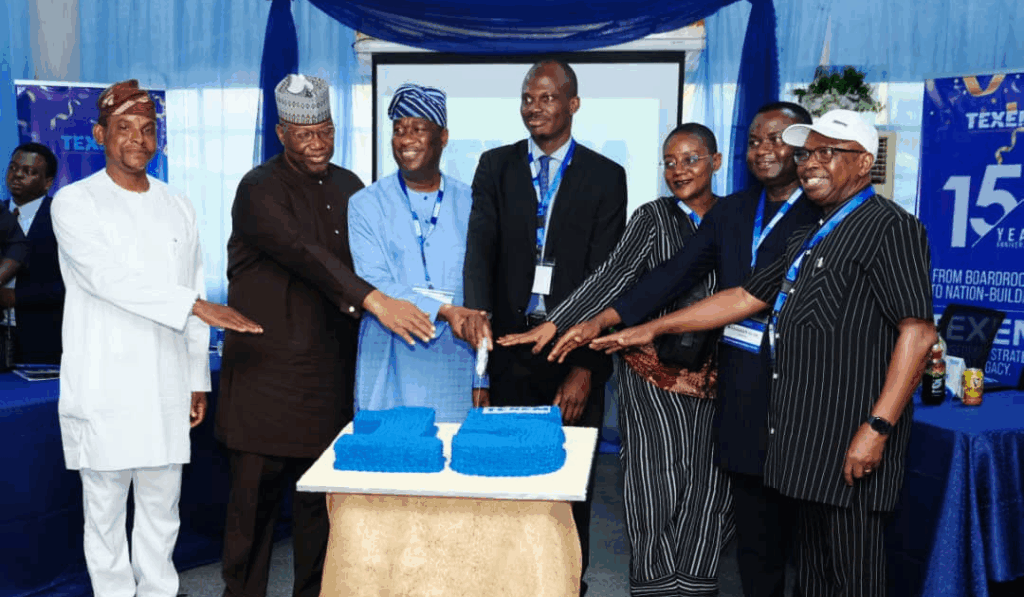To mark its 15th anniversary, UK-based leadership development organisation, TEXEM (These Executive Minds), convened a youth leadership workshop at Greensprings School, Lagos, aimed at nurturing the next generation of Nigerian leaders.
Unlike typical commemorative events that serve as symbolic gestures, the workshop was a deeply intentional and values-driven intervention that highlighted the importance of early leadership development.
“It must start where the future lives—in our schools, in our youth, in the raw courage of untapped potential,” a statement made available to PUNCH Online on Sunday noted.
In what the organisers described as a departure from optics-led corporate interventions, the event brought together over a hundred senior secondary school students. These young participants did not gather for entertainment or token engagement but for an authentic experience that challenged them to lead.
“In a world too often defined by transactional giving and optics-driven interventions, something extraordinary happened at Greensprings School, Lagos. Over a hundred senior secondary students gathered not for entertainment, nor for tokenistic exposure, but for something deeper—a genuine invitation to lead”, the statement partly read.
The event featured an impressive lineup of speakers, but its distinction lay in the ethos that guided it.
“What made this event exceptional was not the calibre of the speakers or the prestige of the organisers, though both were impressive. What set it apart was the moral clarity underpinning its existence. It was a masterclass in normative corporate social responsibility—a manifestation of giving as duty, not as a tactic”, it continued.
According to the statement, the founder of TEXEM, Dr. Alim Abubakre, opened the workshop with a message that resonated throughout the day.
“Dr Alim Abubakre framed the day with one simple but urgent truth: leadership does not begin with a job title. It begins with awareness, with action, and with the courage to serve. This sentiment was not rhetorical. It was a call to conscience that wove through every panel, every breakout session, and every question asked by the students who had never before seen themselves as stakeholders in national transformation”, the statement added.
Speakers at the workshop included prominent figures such as John Momoh, who spoke on the role of media integrity, and Lagos State Deputy Governor, Dr. Obafemi Hamzat, who urged the students to embrace values-driven public service.
The statement continued, “From John Momoh’s passionate reflections on media integrity to Deputy Governor Obafemi Hamzat’s poignant plea for values-driven public service, each contributor affirmed a shared moral belief: that society has a sacred responsibility to equip its youngest members not only with skills but with vision, empathy, and agency. This was not about developing human capital for future corporate gain. It was about honouring the intrinsic worth of every young person and reinforcing that their dreams are not naive—they are necessary.”
The interactive nature of the workshop further reinforced its impact. Students took ownership of their learning by asking tough questions, sharing their views on national issues, and making personal commitments.
“The workshop’s design echoed this ethos. Students were not passive recipients of wisdom; they were co-creators of dialogue. They posed hard questions to public leaders, shared their perspectives on national issues, and committed to specific actions they would take in their communities.
“One student pledged to advocate for mental health awareness among her peers. Another set out to build a small recycling initiative in her neighbourhood. These were not exercises in branding or PR—they were acts of conviction, sparked by a sincere encounter with responsibility”, it continued further.
The statement also reflected on the broader implications of the event, positioning it as a benchmark for responsible leadership and authentic corporate social responsibility.
“The difference lies in intention. Normative CSR does not measure success by future ROI or long-term market positioning. It asks instead: What is right? What is just? What contribution do we owe to those who have no platform, no privilege, and yet every right to flourish? In choosing to invest time, talent, and resources in young Nigerians who hold no purchasing power, TEXEM made a statement of values—not strategy. And in doing so, it reclaimed the moral centre of leadership development.
“This initiative reminds us that CSR need not be tethered to metrics of brand equity or talent pipelines. Sometimes, the purest form of impact is that which expects nothing in return but the possibility of a more just world. For the students who walked into that room uncertain and walked out emboldened, no KPI could capture what was awakened in them. They were seen, they were heard, and they were trusted with responsibility”, the statement reflected.
The workshop, the statement concluded, was not just a celebration of the organisation’s anniversary but a timely reminder of what truly matters in shaping the future.
“As nations wrestle with uncertainty and institutions search for legitimacy, this kind of intervention is no longer optional—it is essential. TEXEM’s workshop serves as a powerful example that when organisations lead from a place of conscience, they do more than fulfil a mandate.
“They honour a legacy of shared humanity. And in doing so, they remind us all that leadership—true, inclusive, compassionate leadership—must begin not at the top, but with the next generation”, the statement concluded.














